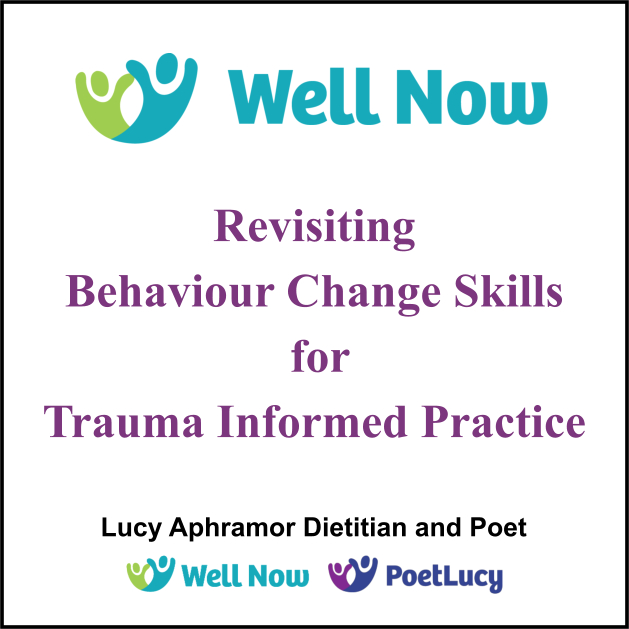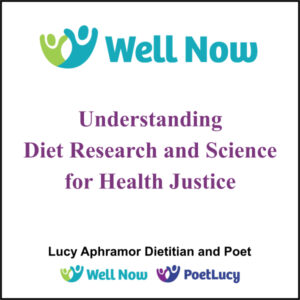Description
Date and Time: 13th & 14th March 2025, 9.30am–4:00pm
Venue:The Gateway Centre, Chester St, Shrewsbury SY1 1NB
3 minutes walk from Shrewsbury station.
Cost: £400 (includes lunch and refreshments)
This intermediate level course, that assumes prior knowledge of how trauma is relevant to nutrition practice and policy, is designed for practitioners and builds on basic listening and counselling skills. It will be useful for anyone trained in behaviour change within frameworks that excluded trauma as a variable. Typically, these behaviour change skills emphasize cognitive input and rely on a stages-of-change model.
The course utilizes the principles of whole person learning and critical pedagogy. There will be guided learning, small and large group activities, discussion and reflection that engages learners in different ways of knowing and suits a range of learning styles.
Throughout the course we will investigate the merits of conventional behaviour change theory and skills through an iterative process of trauma-informed inquiry focusing on diabetes and IBS.
In this way we will build knowledge around food and flourishing that integrates the personal, physiological, and political dimensions of self-care and social justice.
Upon completion of the course the learner will have/be able to:
1. Critically analyze the theoretical basis of various approaches to counselling people experiencing conflicted eating/seeking nutrition counselling and assess their suitability for enhancing self-care and promoting social justice.
2. Examine and assess core beliefs of standard health behaviour change models and demonstrate an understanding of trauma-informed approaches
3. Apply learning to working with clients with (i) diabetes and (ii) IBS
4. Demonstrate an understanding of the concepts of healthism, ableism and nutritionism
5. Demonstrate an understanding of collective approaches to responding to trauma including somatics and know why this is relevant to diet-related disease and health justice




